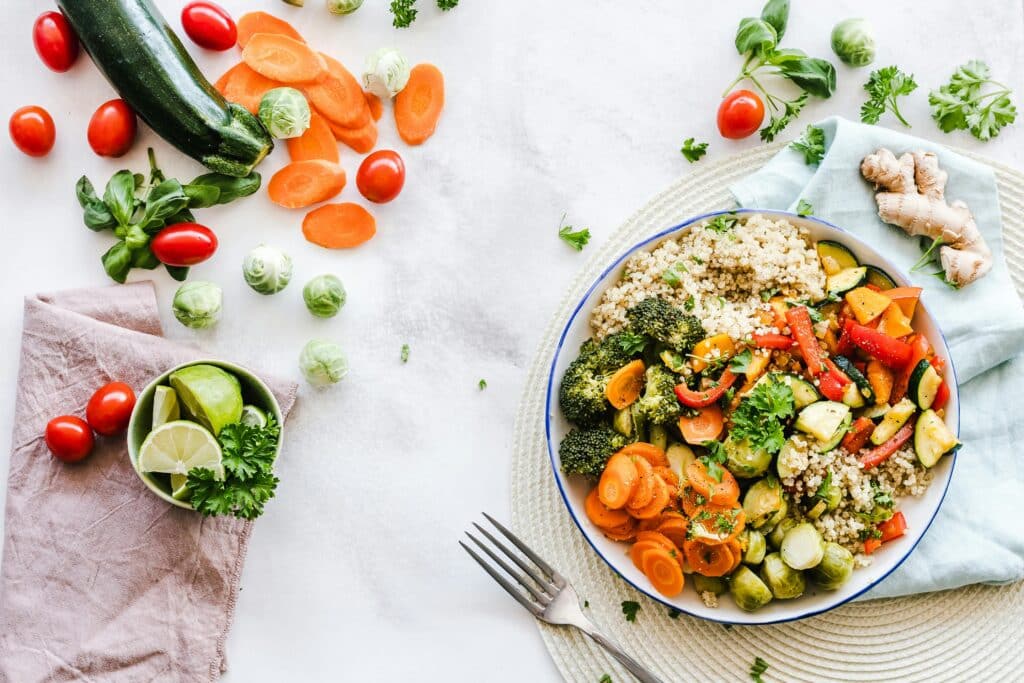Understanding Macronutrients: Health Tip Tuesday Roundup
When it comes to nutrition, there’s a lot of conflicting information out there. Understanding macronutrients is key! Should you cut carbs? How much protein do you really need? Is fat bad for you? The truth is, macronutrients—carbohydrates, proteins, and fats—are all essential for a balanced diet. The key is to focus on quality and make choices that nourish your body. Let’s break it down and explore why each macronutrient plays a vital role in your overall health.

Macronutrient #1: Carbohydrates
Carbs have a bad reputation, don’t they? It seems like every other trend is telling you to cut them out or avoid them entirely. But here’s the thing—carbs aren’t the enemy. In fact, they’re your body’s main source of energy. Once you find the right kinds of carbs for your body, it’s a total game-changer, and a lot easier than you might think.
We’ve all heard of the Mediterranean diet and its well-documented health benefits. While many people credit the healthy fats from fish, another key factor is the abundance of complex carbs—quinoa, oats, sweet potatoes, lentils, and whole grains.
Complex carbs are also high in fibre, which many of us don’t get enough of. Without fibre, digestion can’t run smoothly, and it’s harder to stay full between meals.
Before becoming a nutritionist, I used to lump all carbs into the “not-so-great” category too. But once I learned about the benefits of fibre and how complex carbs support blood sugar balance and energy levels, it completely changed the way I eat. Now, I make sure my meals include the right kinds of carbs, and my kids love sweet potato fries—so it’s a win-win!
Macronutrient #2: Protein
How much protein do you think you should aim for each day? You might be surprised to learn that the general recommendation is around 100g per day.
That might sound like a lot, but protein is crucial for so many functions, particularly healing. Whether it’s recovering from an illness, maintaining energy, or rebuilding tissues, protein plays a key role. It transports nutrients and oxygen, balances fluid levels, and helps keep you feeling full and energized.
When you get intentional about your meals, hitting your protein target becomes much easier. Here’s an example of what I typically eat in a day:
- Breakfast (27g protein): 1 cup Greek yogurt (20g protein) with 2 tbsp almond butter (7g protein), plus berries and ground flax for fiber.
- Snack (18g protein): Peanut butter cup smoothie (recipe linked below!)
- Lunch (38g protein): Leftover miso butter salmon (20g protein) with 1/2 cup quinoa (4g protein) and 1 ounce feta cheese (14g protein).
- Dinner (30g protein): Chicken (27g protein) with 1/4 cup black beans (5g protein) and rice.
These portions work for me—not too restrictive or excessive. I also have snacks between meals when needed, making sure to balance my meals with foods I truly enjoy.
Macronutrient #3: Fats
Gone are the days of low-fat everything. We don’t need to be afraid of fat; in fact, it has so many benefits that our bodies need.
Digestion isn’t just about breaking down food—it’s also about absorption and elimination. Healthy fats like free-range eggs, avocados, cold-water fish, olive oil, and nuts help lubricate the digestive system, making it easier for food to pass through.
If you struggle with dry hair and skin, brittle nails, or constipation, these are clear signs that your body may need more healthy fats.
Want to learn more? Check out this segment I did on Breakfast Television, where I debunk common myths about fat.
Here are some of my favourite sources of fat:
- Nut butter
- Fish
- Avocado
- Olive oil
- Eggs
- Nuts & seeds
Understanding Macronutrients AND Finding the Right Balance
Macronutrients are the foundation of a healthy diet, and the key is balance. Instead of cutting out entire food groups, focus on quality and making mindful choices. Incorporating complex carbs, lean proteins, and healthy fats into your meals will help you feel energized, satisfied, and nourished.
By understanding macronutrients and how they work together, you can build a sustainable and enjoyable way of eating that supports your long-term health. Let’s embrace carbs, prioritize protein, and fuel our bodies with the healthy fats they need!
